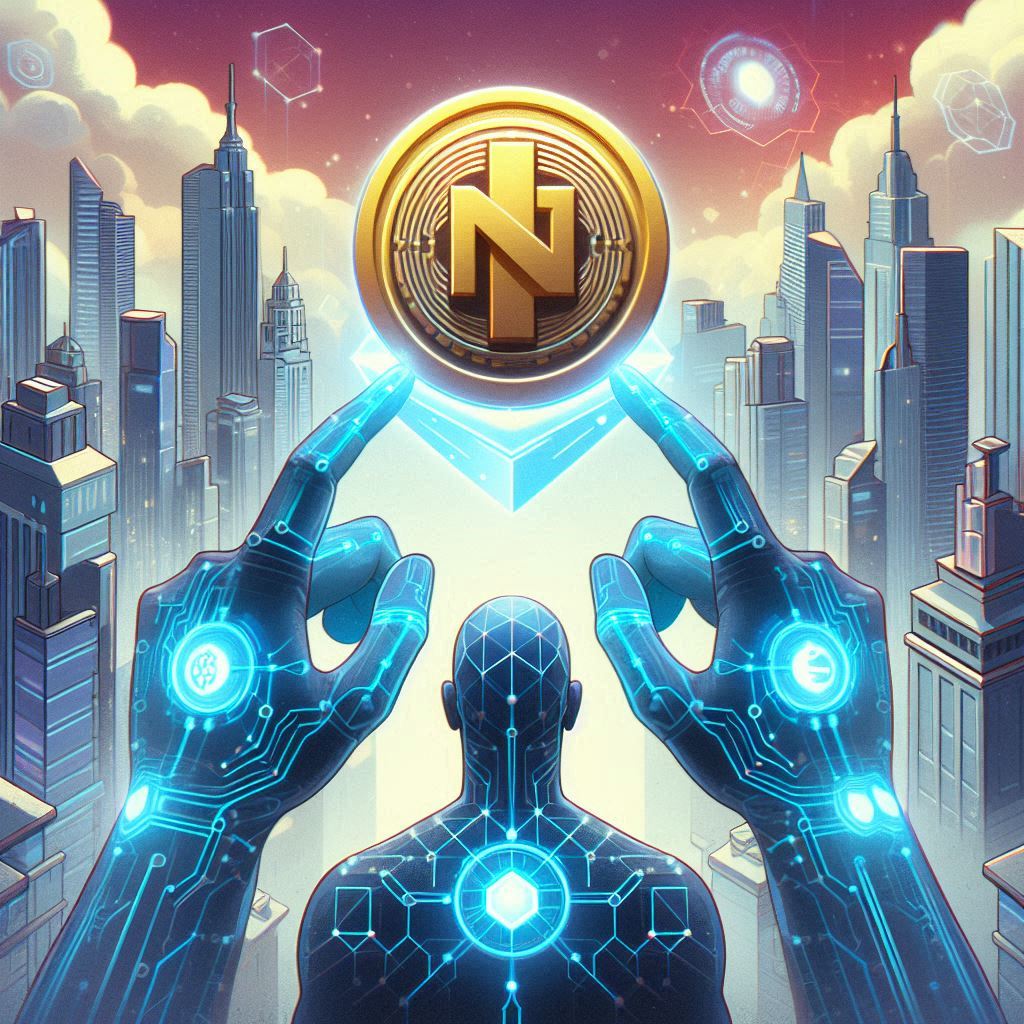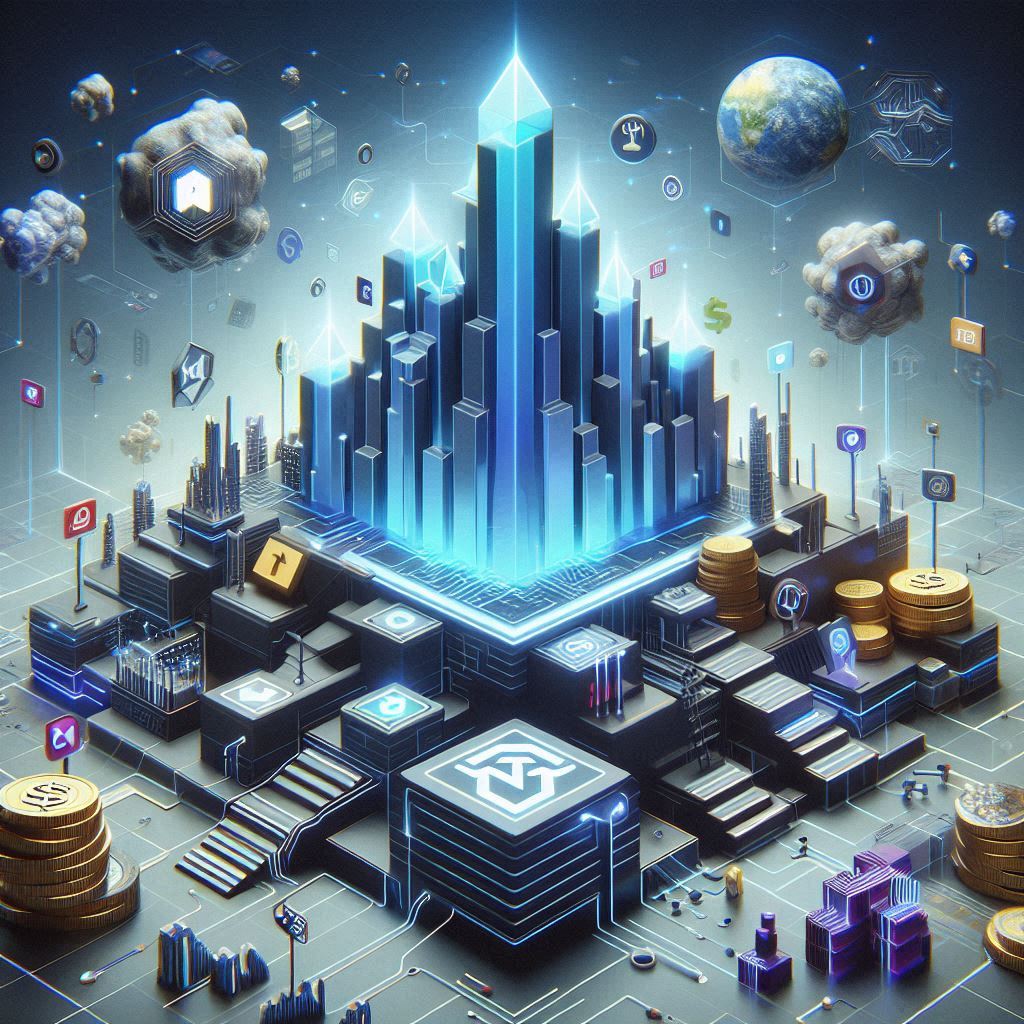
Non-Fungible Tokens (NFTs) have rapidly emerged as a groundbreaking innovation in the digital world, transforming the concept of ownership. Unlike cryptocurrencies such as Bitcoin or Ethereum, which are fungible and can be exchanged on a one-to-one basis, NFTs are unique digital assets that represent ownership of a specific item or piece of content. This uniqueness is what gives NFTs their value, and why they are seen as the future of digital ownership.
What Are NFTs?
NFTs are digital tokens built on blockchain technology, most commonly on the Ethereum network. Each NFT is distinct, with metadata that distinguishes it from any other token, making it non-fungible. This allows NFTs to represent a wide range of digital assets, including artwork, music, videos, virtual real estate, collectibles, and even tweets.
The key to NFTs lies in their ability to provide proof of ownership and authenticity. When you purchase an NFT, you acquire the rights to that specific digital asset, which is recorded on the blockchain. This record is immutable, meaning it cannot be altered or tampered with, ensuring the integrity of ownership.
Why NFTs Matter
NFTs are revolutionizing the way creators and consumers think about digital ownership. For artists, musicians, and other content creators, NFTs offer a new way to monetize their work. By minting their creations as NFTs, they can sell them directly to consumers without the need for intermediaries like galleries or record labels. This not only allows for greater creative control but also enables creators to earn royalties each time their NFT is resold.
For collectors and investors, NFTs represent a new asset class. Just as people collect physical art, rare coins, or vintage cars, they can now collect digital items that have value due to their uniqueness and scarcity. Some NFTs have sold for millions of dollars, making them highly sought after in the investment community.
The Appeal of Digital Scarcity
One of the main reasons NFTs have gained popularity is the concept of digital scarcity. In the digital realm, where content can be easily copied and distributed, NFTs introduce the idea of limited availability. By owning an NFT, you possess something that is verifiably rare, even if it’s a digital item that could otherwise be replicated endlessly. This scarcity drives up the value of certain NFTs, especially when they are tied to popular culture or influential creators.
Challenges and Criticisms
Despite their rapid rise, NFTs are not without controversy. One of the major criticisms is the environmental impact of the blockchain technology that underpins them, particularly Ethereum, which uses a significant amount of energy. However, efforts are underway to transition to more energy-efficient systems, like Ethereum 2.0, which promises to reduce the environmental footprint of NFTs.
Additionally, the speculative nature of the NFT market has raised concerns about bubbles and market manipulation. While some NFTs have skyrocketed in value, others have seen dramatic drops, leading to questions about the sustainability of the market. As with any new asset class, there is a risk of volatility, and potential investors should approach NFTs with caution.
The Future of NFTs
Despite these challenges, the potential of NFTs to reshape digital ownership is undeniable. As technology evolves, we can expect NFTs to expand beyond art and collectibles into other areas such as real estate, gaming, and even identity verification. Virtual worlds, or metaverses, are already using NFTs to represent ownership of digital land and assets, hinting at a future where our digital lives are as valued as our physical ones.
Moreover, as blockchain technology becomes more integrated into various industries, NFTs could play a crucial role in establishing and verifying ownership in a decentralized manner. This could lead to new business models and revenue streams for creators and innovators across the globe.
Conclusion
NFTs represent a paradigm shift in how we perceive and interact with digital assets. By providing a way to verify ownership and authenticity in the digital world, NFTs are paving the way for a new era of digital ownership. While still in its early stages, the NFT space is full of potential, with the power to disrupt traditional industries and create new opportunities for creators, collectors, and investors alike. As the technology matures and adoption grows, NFTs could very well become a cornerstone of the digital economy.

